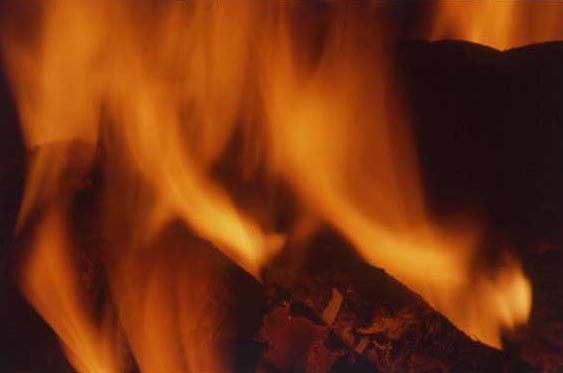
TONGUE
JOHN DUNCAN & ELLIOTT SHARP
CD
Duration: 67 minutes
Allquestions

|
Former enfant terrible of installation art John Duncan's fascination lies in what can be learned when we are pushed beyond extremes. His past work involved his own total immersion in acts of shocking transgression, holding the least forgiving of mirrors up to his audience; his recent sound art is a calmer reflection on similar themes. Elliott Sharp's extraordinary prowess across a vast range of musical disciplines is well known. TONGUE sees the pair exploring the limits of the human voice through rigorous processing, which exposes its natural grain (Sharp's throat-produced harmonics sounding particularly startling) while simultaneously spinning it into complex, spellbinding patterns. Weaving among these lie the modulated voice signals from shortwave radio. The fascinating results suggest a strange universal language of the soul, mysteriously encoded in the very physiognomy that dictates vocal production. Keith Moliné, The Wire TONGUE is a fantastic document of mulched shortwave and vocalizations, and will probably be one of the better sound art recordings to come out in 2004. ... Tongue is really a superb piece of work. Duncan has long praised the human voice as the most powerful instrument that he's encountered, even above his beloved shortwave which has been central to almost all of his compositions. Here, Duncan and Sharp manipulate sustained vocalizations from both artists as well as quiet gurglings of saliva coagulating within the cavities of their respective mouths. While these sounds acquire a delicate tactility that recalls the likes of Steve Roden and Toshiya Tsunoda, Duncan's shortwave interrupts and ruptures the quiet passages of this record with caustic static, twin blade flutterings, and electrocuted drones. Much could be said about the dislocation of the voice by a transmitter / receiver machine, but we'll leave that for the post-structuralist, academic types. That said, Duncan's recent work has shifted toward monumental compositions of minimalism (e.g. Phantom Broadcast, Stun Shelter, Keening Towers, etc.); but with TONGUE, his work privleges the fragment (perhaps in deference to Sharp), making this an album closer to his previous masterpieces Tap Internal and River In Flames. Jim Haynes, Aquarius As Joan LaBarbara titled her ancient LP, "Voice is the original instrument" - so what happens when you open that instrument bringing out its components? This question is answered by Duncan and Sharp in "Tongue": using voices as source plus shortwave and processing as coagulant, John and Elliott hallmark your listening space with plumbeous halos of slowed harmonics and intense confluences of spectral deflagrations. The tracks where the vocals are evidently recognizable are absolutely spectacular in their power - imagine enormous Tuva singers bursting out in a hell of rotors; on the other hand, shortwave and treatments often bring a complete timbal deforestation, rearranging the ear's domain according to unpredictable leaderships and patterns. Again, gurgling guttural beast utterances get modified, losing their identity through artificial leakages while the strength of tampered low frequencies makes way to the total reassertion of a stationary, fearful status quo. Mind-bogglingly innovative, this music is going to resist the hard test of passing time: it must be considered an important stepping stone in both artists' history. Massimo Ricci, Touching Extremes Most of John Duncan�s works immediately preceding this one (THE KEENING TOWERS, PHANTOM BROADCAST, INFRASOUND-TIDAL) are somewhat static in overall sound and architecture. TONGUE breaks that mold, offering a wide dynamic palette and adopting a more eventful demeanor. On paper, but only on paper, this work comes closer to DA SICH DIE MACHTGIER..., which featured the processed voice of Asmus Tietchens. This time around, Elliott Sharp seems to have provided the basis of the work -- "seems," because very little details are given. Sharp is credited for voice and processing. Some sounds do hint at a vocal nature (especially in the early moments of the piece); then again, knowing voice is involved, the listener tends to interpret any growling or moaning sound that way. Duncan is credited for shortwave, voice and processing. The result is a finely-tailored 67-minute piece, laid down across seven tracks. Sounds are mostly abstract and range from electronic pulses and quiet pitched drones to white noise textures and complex events. The pace is rather slow and insistent, with quickly introduced vehement sections and a more contemplative finale. The piece doesn�t draw as much emotional involvement from the listener as THE KEENING TOWERS or PALACE of MIND, but it doesn�t let go of one�s attention either. It generates a wide array of mental images, while keeping the listener firmly seated on a single hour-long ride. Elliott Sharp�s followers can expect to be confused, as this album strays far from his already unpredictable usual output. Fans of Duncan will find in TONGUE one of his most rewarding albums of late. François Couture, All-Music Guide TOUNGE's strongest, most compelling moments are those where the known is made unfamiliar. Commonplace vocal utterances are remade into alien sounds that initially seem as if new territories are being discovered, infrequent semblance to didgeridoo or Tuvan singing notwithstanding. Despite the album's meaty title (denoting both object and action), the oral appendage and its yield are not approached fetishistically as much as they are microscopically examined and manipulated. TOUNGE undulates within a subtle, yet primarily unpredictable compositional structure as the voice sounds shift to mimic accompanying short wave and electronic sounds - or perhaps the opposite. Feedback moves into and out of a bass heavy sound field and is mixed and punctuated with rattling, croaking noises of questionable origin. Carefully processed pulsations give aural and mental impressions of spinning helicopter blades and creaking doors, establishing an ambiance of veneration tinged with dismay. After a while, TOUNGE eventually employs the same approach and drifts for perhaps too long before building up to the lengthy closing track, a seething thing with wrath lurking underneath its few quiet spaces. The onerous, rumbling throbs that close the album fill it with more mystery and energy as when it began. Randal Wilcox |